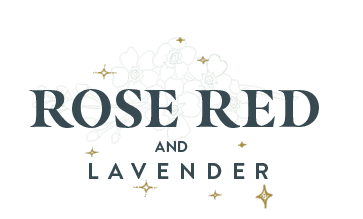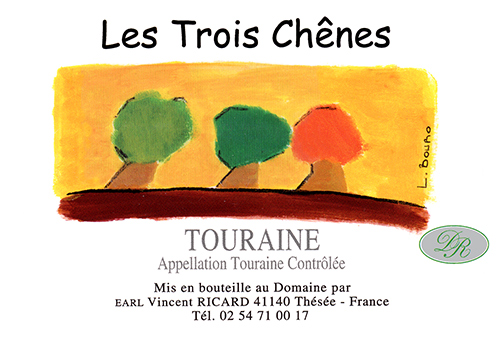
Moore Brothers Wine
The Truth About Wines
Lesson on Choosing Wine for Your Wedding
Last year has been a transformative year for me. I learned to embrace who I am and to surround myself with people who shared the same laws of life that I have. I don’t call them values, that seems like something you cherish and want to obtain. These are laws, rules of life that you have to live by. For example; be real and transparent, don’t follow the herd, if you do any job, do the best job possible, and share your joy and love for what you do.
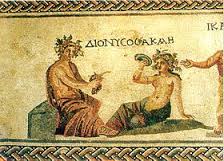
Ancient Greeks with Wines
Wine, like flowers has always been a part of life’s celebrations. The cultivation of wines dates back to 6000 BC in Georgia and then spread to Greece and Rome, some of the oldest vineyards in Bordeaux, France were first cultivated by the Romans. It was worshiped by Greeks and Romans and is an important part of modern Jewish wedding ceremonies, under the Chuppah is a table with wine which the bride and groom drink after it is blessed. The wine is symbolic of life. It begins as sweet grape juice, goes through a fermentation process where it turns sour and in the end becomes delicious drink that brings joy to your life. The longer it ages, the better it gets. A “wine glass” is broken (usually it’s a lightbulb) to announce the marriage and to remember the past. Jesus drank wine, I do WWJD.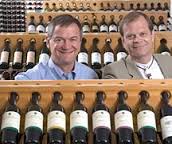
Recently, a wine shop opened across from us called Moore Brother’s. When I learned that they mostly sold European wines, at first I was skeptical. “Great, I thought, a wine shop full of wine snobs with bottles that I could only afford on special occasions, I’ll stick with my local place.” From my experience, cheap French wines can be pretty terrible and I was happy with my $15 Pinot Noirs from Oregon.
The shop is kept at 56 degrees, cave temperature, and to say that the staff is passionate about what they do is an understatement. People flock from all over the city buying cases at a time. They have a huge cult following. An ancient window that had been taken from one of the buildings that were being renovated at Industry City was placed in the wall, giving me a constant view of all of the bottles and the people inside.
They were having an open house and a tasting of 12 bottles so I went to pay them a visit. The first thing I learned was that we are disconnected with the wine we drink and you can use just a cheap college dorm type fridge set at the highest temperature to store it. I also learned that Americans drink their whites too cold and their reds too hot. 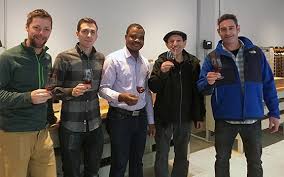
New York has gone through a food resonance. We have discovered artisanal foods from small producers, that organic food simply tastes better and unusual varieties of vegetables that are not grown by commercial growers. There are wonderful chefs for events and weddings like Holly Sheppard from Fig and Pig and Nahvae Frost from 1136 Catering who have really set the bar high for real, honest food made from the best ingredients. People are willing to spend the extra money for superior food and brag about being “foodies” but don’t hold the same standards for the wine they drink. The wine we drink is mostly crap, the really cheap stuff is full of chemicals, and the good stuff doesn’t cost that much more.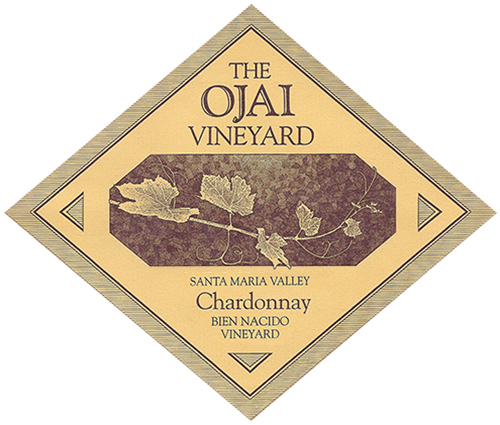
This reality, that our food standards doesn’t match our wine standards was confirmed by me when I went to pick up some chocolate from Fine and Raw Chocolates, a bean to bar, organic chocolate maker who loves to throw great parties. Next to the glorious chocolate that is ushered into this world with great passion and care were cases of mass produced wine, Barefoot and Charles Shaw. Mind Blown.
I started Rose Red & Lavender wanting to share my passion and love for plants and flowers with my neighbors in Williamsburg, Brooklyn. I wanted to create floral designs that celebrate the flowers and that look like they naturally grew into place. I wanted to create designs that make you feel comfortable, calm and that invite you in to observe and explore. Keeping things real is very important to me.
When I paid my visit, I had the pleasure of meeting Greg Moore, his brother David and David’s son Terry who they are grooming to take over the business when “one of them croaks” Greg told me about how he got started in the business, how he chooses the wines for his shop, and walked me through the racks of bottles sharing stories about the growers.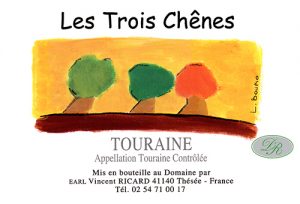
Greg started his company with his brother David in 1996. Greg had been a well respected sommelier at Le Bec-Fin in Philadelphia, it was known as the finest French restaurant in America, if not the finest restaurant in America. It lead the Philadelphia food revolution and many great chefs were trained there. His brother worked at a well known and respected wine retailer and knew the ins and outs of the wine business.
From the start, they wanted to do something different. They wanted to share their passion of wines with their community and to present wines that are grown on small family farms using traditional methods. They don’t sell any mass produced wines and they have exclusives with most of the vineyards that they import from. You won’t find Yellowtail or Cupcake in his shop.
I asked Greg if he had any American Wines. He pointed to a small rack off to the side and said, “That is where the new world wines are” He walked us over to the racks and pointed out a bottle of Chardonnay from the Ojai vineyard in Santa Maria Valley. “This wine”, he said, “is delicious, it is priced at $33.” He explained to me that we don’t have the rich history and culture of wine production, our vines are young and that our wines are priced too high for the quality that you receive. In Europe, grapes are grown everywhere, and they are cheap.
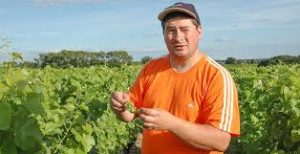 Greg then walked us over to the French section, and picked up a bottle from Domaine Corsin of Macon Villages, another Chardonnay. “This wine,” he explained, “is grown on some of the oldest vines in the region.” He told me that the French had strayed from the old ways of doing things, that they had started using chemical fertilizers and pulling all the “weeds” from around the vineyards and the quality of the wine suffered. This was music to my ears. Of course that would happen! Food and wine are products of the soil they are grown in and if you have monocultures and lack of bio-diversity, everything goes bad. “This grower”, he explained, “grows using the old methods. When you walk through the rows, the soil becomes more and more compacted and the vines less and less hearty, and get diseased. The grapes used in these wines come from the heartiest vines. It sells at $21.”
Greg then walked us over to the French section, and picked up a bottle from Domaine Corsin of Macon Villages, another Chardonnay. “This wine,” he explained, “is grown on some of the oldest vines in the region.” He told me that the French had strayed from the old ways of doing things, that they had started using chemical fertilizers and pulling all the “weeds” from around the vineyards and the quality of the wine suffered. This was music to my ears. Of course that would happen! Food and wine are products of the soil they are grown in and if you have monocultures and lack of bio-diversity, everything goes bad. “This grower”, he explained, “grows using the old methods. When you walk through the rows, the soil becomes more and more compacted and the vines less and less hearty, and get diseased. The grapes used in these wines come from the heartiest vines. It sells at $21.”
“The French” , he said, “know nothing about wine, for the most part, they expect to have cheap, plentiful wine. This wine is mostly crap. The abundance of grapes and wine keeps the prices low and is why we can get such excellent, inexpensive wine from Europe, if you know where to find them.” Greg was like a kid in a candy store, or, I guess like a sommelier sharing his obsession for his wines. It is wonderful to be in the company of someone who is so passionate about what they do, he was giddy.
He then marched us over to a bottle of Les Trois Chenes from Touraine, Domaine Ricard from the Loire Valley, the bad boy of wine. It has a silly label using a trendy hand-drawn font and looked out of place next to its austere cousins with the very specific labels with centuries old designs. Vincent Ricard grew up in the family business and they grew grapes en-masse to sell to the cooperatives. Their mission was to grow as many grapes as they could which lead to using more modern methods of growing and really low quality grapes, which produce a very specific, yet lack luster wine. When he took over the family he decided to stop selling to the cooperatives, which angered his father, and alienated his neighbors. He started growing grapes using organic, biodynamic practices (aka charcoal and manure with lots of “weeds” around, like they did before the 50’s and forever past). The wine he started to produce, was excellent. Too excellent, as a matter of fact. It was so good, that it was considered a-typical of the region and he is not allowed, by law, to claim the Appellation d’Origine Controlee (AOC) for his region. Not that it matters to him, he has a huge following in the UK and in the United States and really doesn’t need the French market, and according to Greg, “The French don’t know much about wine” the Domaine Ricard wines sell for about $15-$20 per bottle.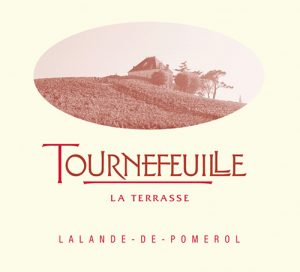
I recommend that when you are planning any event or wedding that you take a visit to Moore Brothers. It would be shameful to serve carefully prepared, organic food produced on biodynamic farms and not have a wine of equal merit. Surprisingly, most of the stock in the store is very reasonably priced and all are an excellent value. There are bottles of Bordeaux that sell for $38, like Tournefeuille that are literally grown across a creek from vineyards like Chateau Le Pin that sell their wines for $3000 and in David Moore’s opinion, equally as good.
Wouldn’t it be wonderful if people paid as much attention to the wine being served with foods at weddings and moved beyond the simple red or white and picked carefully crafted wines that are grown in an organic, sustainable way?
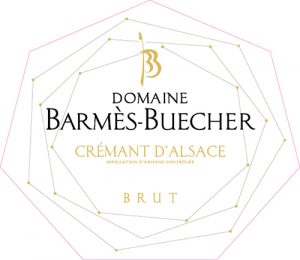 A must try is Cremant d’Alsace Domaine Barmes-Buecher, a wonderful sparkling wine which would be perfect for your wedding toast and rivals most grand cru champagnes at only $19 a bottle.
A must try is Cremant d’Alsace Domaine Barmes-Buecher, a wonderful sparkling wine which would be perfect for your wedding toast and rivals most grand cru champagnes at only $19 a bottle.
From now on, this will be my go to shop. They live by the same laws I do. They are passionate, they care, they only want the best and they want to share their love and joy for what they do, and they don’t follow the herd.
